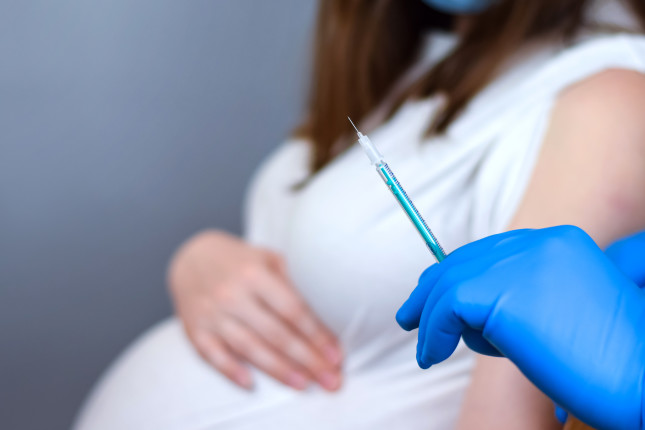-
Covid-19 // Dot-Mom // Reading Radar
COVID-19 Vaccine Has No Demonstrated Impact on Miscarriage Rates in the United States, Research Shows
September 29, 2021 By Deekshita Ramanarayanan
COVID-19 continues to pose a high risk to pregnant people who contract the virus. Despite this concern, hesitancy surrounding the safety of the COVID-19 vaccine during pregnancy remains, write the authors of a preprint article on COVID-19 vaccines and pregnancy outcomes. As COVID-19 vaccines become more widely available, some have raised concerns regarding potential links between receiving a COVID-19 vaccine and experiencing miscarriage (also known as spontaneous abortion), and other adverse outcomes. However, miscarriage is a common occurrence – around 10 to 15 percent of all pregnancies in the United States end in miscarriage – and multiple studies have found no increase in miscarriage in persons who received a COVID-19 vaccine.
One study team used the Centers for Disease Control and Prevention’s (CDC) v-safe pregnancy registry, a smartphone-based tool for people in the United States who have received a COVID-19 vaccine. Participants were included if they had received at least one vaccine dose prior to conception or before 20 weeks gestation and did not have a pregnancy loss before 6 weeks gestation – pregnancies lost beyond 20 weeks gestation are considered stillbirths not miscarriages, and 6 weeks gestation is typically the earliest a pregnancy can be detected. Out of 2,456 participants, 165 experienced a spontaneous abortion. The study found that the cumulative risk of spontaneous abortion between 6 and 20 weeks gestation was 14.1 percent.
Among the study participants, 65 participants were contacted in their first trimester, but could not be reached during their second. To account for this drop-out, the study team conducted a “sensitivity analysis” with the assumption that these 65 participants experienced a spontaneous abortion. In this analysis, the cumulative risk of spontaneous abortion rose to 18.8 percent. The study team then used data from historical cohorts to represent the “typical” upper and lower ranges of risk of spontaneous abortion before the onset of the COVID-19 pandemic. They found that the calculated cumulative risk – both with and without the sensitivity analysis – fell within the expected risk range.
A second study also concludes that the COVID-19 vaccine poses no increased risk for miscarriage and bolsters the findings of the prior study with the inclusion of a comparison group. This study used the Vaccine Safety Datalink database, a collaboration between the CDC and nine health systems across the United States. Researchers included individuals who received their first dose of the vaccine within 6 to 19 weeks gestation and assigned each an “index date” to reflect when they entered the study. They then compared this group to a contemporaneous cohort of unvaccinated pregnant individuals to determine the impact of the COVID-19 vaccine during pregnancy. The study compared the odds that a participant who had a spontaneous abortion had received a vaccine within 28 days of the event with the odds that a participant who carried a pregnancy to term had the same vaccine criteria. The study team found that, compared to participants with ongoing pregnancies, those who had a spontaneous abortion were not significantly more likely to have received a COVID-19 vaccine.
These studies help prove that receiving the COVID-19 vaccine before or during pregnancy is not associated with higher rates of miscarriage. Nevertheless, more research is needed to strengthen the evidence-base and combat persistent misinformation. Continued investment and investigation is critical to fighting vaccine hesitancy and preventing the further spread of COVID-19, especially among vulnerable populations.
Read More:
- Misconceptions about miscarriage can lead to guilt, shame, and loss
- Pregnant people must be included in global vaccination efforts
- Equity in distributing the COVID-19 is essential to building trust across marginalized groups
Sources: Centers for Disease Control and Prevention, Kharbanda, E. O. et al (2021), Thabane, L. et al (2013), The Philadelphia Inquirer, Zauche, L.H. et al (2021).
Photo Credit: Pregnant woman in face mask getting vaccinated in clinic. Marina Demidiuk/Shutterstock.com.
 A Publication of the Stimson Center.
A Publication of the Stimson Center.



